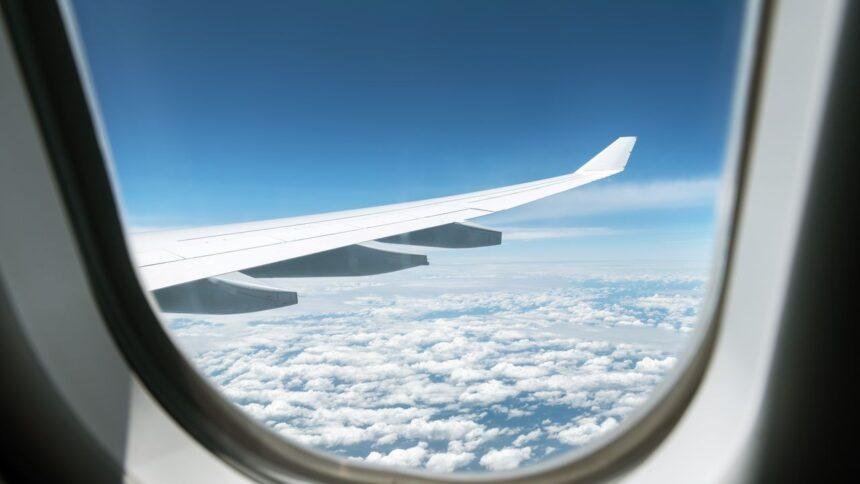U.S. Airlines Escape Stricter Compensation Rules as DOT Abandons Proposed Regulation
In a significant development for air travelers in the United States, the Department of Transportation (DOT) has officially abandoned a proposed regulation aimed at providing financial compensation for flight delays and cancellations. This decision marks a departure from the Biden administration’s earlier efforts to enhance passenger protections, leaving many travelers without the robust safeguards enjoyed by their counterparts in Europe and Canada.
Background on Passenger Compensation
The issue of compensation for flight disruptions has long been a contentious topic in the U.S. Unlike the European Union, where regulations such as EU 261 mandate airlines to compensate passengers for delays and cancellations, the U.S. has historically offered limited protections. In Europe, passengers can receive compensation ranging from €250 to €600, depending on the distance of the flight and the length of the delay. This stark contrast has led many American travelers to advocate for similar protections.
In 2023, the Biden administration sought to address this disparity by proposing a new rule that would require U.S. airlines to compensate passengers with cash payments ranging from $200 to $775 for delays of three hours or more caused by issues within the airline’s control. This proposal aimed to hold airlines accountable for disruptions stemming from factors like staffing shortages, mechanical failures, or technical malfunctions.
The Proposal’s Demise
On September 5, the DOT, under the leadership of the Trump administration, officially scrapped this proposed regulation. The decision has drawn criticism from various quarters, including former Transportation Secretary Pete Buttigieg, who championed the initiative. Buttigieg expressed concern that the DOT is “starting to dismantle” the passenger protections established during the Biden administration. He highlighted the importance of the proposed rule in providing compensation for extreme delays, stating, “We just learned last week that they are eliminating a rule that we launched to give you compensation in the event of an extreme delay.”
The proposed regulation would have also required airlines to cover additional costs incurred by passengers during disruptions, such as meals, hotel accommodations, and alternative transportation. Currently, while some U.S. airlines voluntarily offer these services during lengthy delays or cancellations, there is no legal obligation for them to do so. This lack of regulation means that airlines can choose to withdraw these offerings at any time, leaving passengers vulnerable during travel disruptions.
Current State of Airline Policies
As it stands, U.S. airlines are still required to provide automatic cash refunds if a flight is canceled and passengers opt not to accept a flight voucher or rebooking. This regulation remains intact and continues to protect travelers in the event of cancellations. However, the absence of a compensation framework for delays means that many passengers will continue to face uncertainty and financial strain during travel disruptions.
Brett Snyder, president of the travel assistance company Cranky Concierge, noted that the scrapping of the proposed rule does not change the current landscape for U.S. travelers. “Airline passengers have never been compensated for delays in the U.S., so this just keeps the status quo,” Snyder explained. He added that while the previous plan could have provided compensation, it might have also led to increased ticket prices as airlines sought to cover the costs of payouts.
The Broader Implications for Travelers
The decision to abandon the proposed compensation rule raises questions about the future of passenger protections in the U.S. As air travel continues to rebound post-pandemic, the potential for delays and cancellations remains high. The lack of a regulatory framework for compensation could lead to increased frustration among travelers, particularly as they compare their experiences to those of passengers in regions with more robust protections.
Historically, the U.S. airline industry has faced criticism for its handling of customer service and passenger rights. The deregulation of the airline industry in the late 1970s led to increased competition and lower fares, but it also resulted in a decline in service quality and consumer protections. The recent abandonment of the proposed compensation rule may signal a continued trend of prioritizing airline profitability over passenger rights.
Conclusion
The DOT’s decision to scrap the proposed compensation rule for flight delays and cancellations represents a significant setback for U.S. travelers seeking greater protections. As the airline industry navigates the complexities of post-pandemic travel, the absence of a regulatory framework for compensation leaves passengers vulnerable to the whims of airlines. While some protections remain in place, the lack of comprehensive compensation policies continues to highlight the disparities between U.S. and international travel standards. As travelers prepare for their journeys, the hope for a more equitable system of compensation remains unfulfilled, leaving many to wonder what the future holds for passenger rights in the United States.











